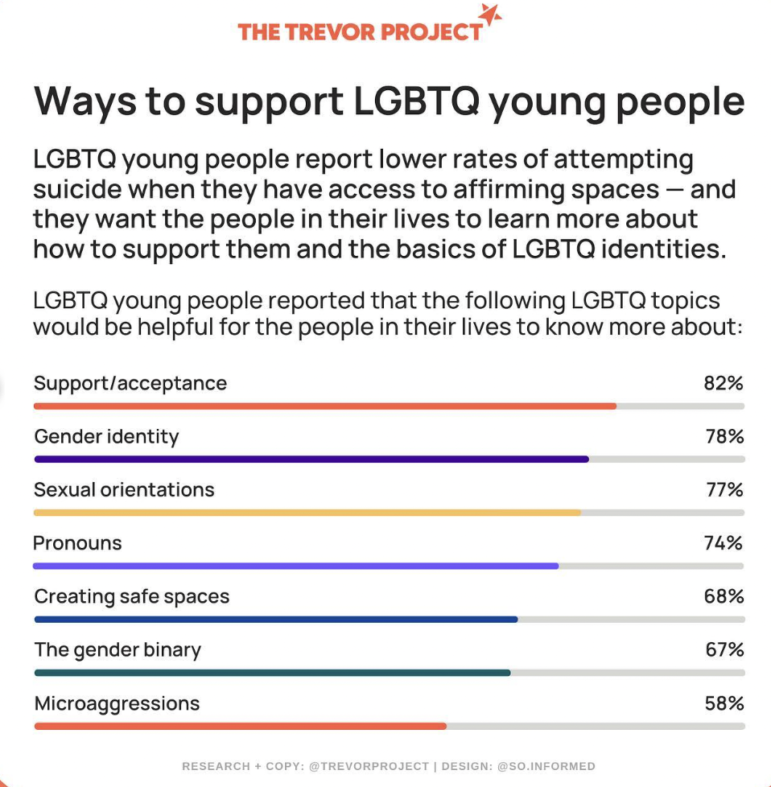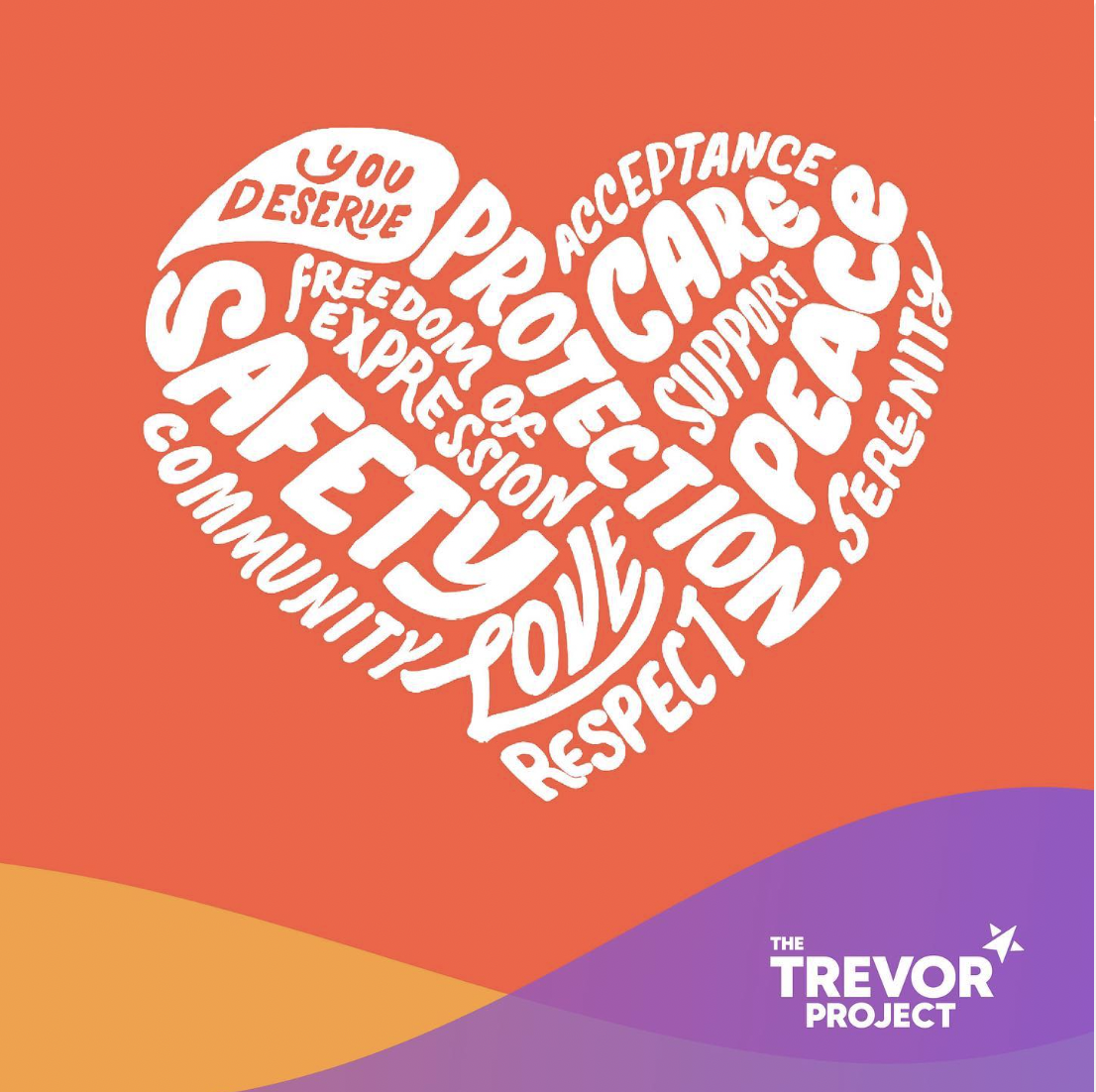The Trevor Project, a suicide prevention group for young LGBTQ people, has released its annual 2023 U.S. National Survey on the Mental Health of LGBTQ Young People.
Many of its findings are dire: 41% of LGBTQ young people seriously considered attempting suicide in the past year. The rates were highest for young people who are not cisgender — meaning they do not identify with the gender they were assigned at birth: transgender men (56%) transgender women (48%) and nonbinary/genderqueer young people (48%).
The survey found that LGBTQ youth who received support and acceptance at home, school, in the doctor’s office and in local policy debates were less likely to suffer from poor mental health, including suicide attempts, suicidal ideation, anxiety and depression.
Researchers with the Trevor Project say that these findings demonstrate that bigotry and victimization harm the mental health of LGBTQ youth and that support and acceptance can be life-saving.
“As the existence of LGBTQ young people continues to be unfairly put up for debate, it’s critical to consistently underscore that these challenges are not inherent to LGBTQ identity, but rather stem from stigma, discrimination, and violence,” said Dr. Ronita Nath, vice president of research for the Trevor Project, in a statement.
Here are some key findings:
- The survey found that 60% of LGBTQ young people reported they have felt discriminated against in the past year due to their sexual orientation or identity. Twenty-four percent reported they were physically threatened or harmed. Fifty-three percent of respondents said they were verbally harassed at school.
- Half of transgender and nonbinary people said none of the people they live with respect their pronouns, and 21% of those respondents attempted suicide in the last year. Rates were lower for respondents who lived in homes where everyone respected their pronouns: 12%.
- Those with access to a gender-neutral bathroom at school were less likely to report attempting suicide (15%) than those who didn’t (21%).
- Transgender and nonbinary young people were more likely to find affirming spaces online (70%) or at school (52%) than at home (35%).
- 28% of those who were threatened with or subjected to conversion therapy attempted suicide in the past year compared with 11% of those who were not. This corroborates the view of some psychiatric professionals that conversion therapy — a treatment purporting to “cure” those who do not identify as cisgender and heterosexual — worsens the mental health of LGBTQ youth.
- Nearly 2 in 3 LGBTQ young people said hearing about proposed state or local laws banning the discussion of LGBTQ people at school made their mental health a lot worse. On the other hand, 79% said that hearing about laws aimed at banning conversion therapy made them feel better.
- Among transgender and nonbinary young people, 11% reported being on gender-affirming hormones and 2% reported taking puberty blockers. Nearly two-thirds of those on gender-affirming hormones were concerned about losing access to this care.
- Eighty-two percent of respondents said the people in their lives should know more about support and acceptance.
The Trevor Project’s annual survey relies on a sample from 28,524 LGBTQ people between 13 and 24 years old who were recruited via targeted ads on social media.
Anyone who needs to talk about their mental health or thoughts of suicide can call the organization’s hotline at 1-866-488-7386 or text the hotline at 678-678.

